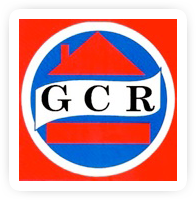Abstract of title is the condensed history of the title to a particular parcel of real estate, consisting of a summary of the original grant and all subsequent conveyances and encumbrances affecting the property and a certification by the abstractor that the history is complete and accurate. Title furnishes the raw data for the preparation of a policy of title insurance for the parcel of land in question.
Agreement of Sale; or Purchase and Sale Agreement: A written agreement by which a buyer agrees to purchase and a seller agrees to sell according to terms set forth in that agreement.
Amortization: The reduction of a loan or debt by periodic payments according to agreed upon terms. Your mortgage is being amortized every month that you send a payment to the lender.
Appraisal: A procedure in which a qualified individual estimates the value of a piece of property.
Appreciation: The increase in the value of real estate due to external circumstances including inflation and other economic conditions.
Binder: An offer to purchase property which is accompanied by a sum of money, smaller than a down payment, to show good faith prior to a formal agreement.
Closing: The final meeting at which the transfer of title of property passes from the seller to the buyer.
Closing Cost: Included all the charges attached to closing. These one time fees include charges for title search and insurance, attorney’s fee, survey, and points charged by lender of mortgage. These are also known as settlement costs.
Condominium: An apartment house where individual apartments are purchased, rather than leased by the occupants.
Cooperative Apartment: Rather than renting an apartment the tenant buys stock in the corporation that owns the building. The cost of the stock is usually determined by the size of the apartment.
Deed: A legal document whereby title to real estate is transferred from one person to another.
Equity: The difference between the market value of a house and the balance owed on the mortgage, usually referring to the owner’s interest or value on real estate.
Escrow: Money, securities, or other property placed in the keeping of a third party until obligations by the other two sides, set out in the escrow agreement have been fulfilled.
Lease: A written document containing the conditions for the exclusive possession of real estate by the owner to another for a definite period of time.
Leverage: The use of a small investment to generate a greater rate of return through borrowed funds. The most common form of leverage is a homeowner using a small down payment to purchase a home.
Lien: A claim or charge upon property for payment of a debt, obligation or duty.
Listing: An agreement between a broker and an owner, that the broker may sell or lease the real estate.
Market Value: The highest price that a buyer will pay and the lowest price a seller will accept for a property.
Mortgage: The conditional transfer of title to real estate as security for a loan.
Points or discounts: The fee charged by a lending institution for making a loan at an interest rate below the conventional rate. One point equals one percent of the loan.
Refinance: Process of paying off an existing loan with proceeds from another.
Second Mortgage: Financing real estate with a loan or loans that are subordinate to the first mortgage. It usually calls for a higher interest rate and a shorter repayment period.
Survey: An exact measurement of a parcel of land to ascertain corners, boundaries and divisions.
Title: Evidence, usually in the form of a deed, that a person has the right to ownership of the property in question.
Title Insurance: A policy that protects the buyer against any loss or damage resulting from a defective title.
Title Search: A detailed investigation to ensure that any property is purchased from the legal owner and that there are no liens or special assessments against it.
Zoning: Procedure that classifies real property for a number of different uses: residential, commercial, industrial, etc., in accordance with a land-use plan. Ordinances are enforced by a governing body or locality.
